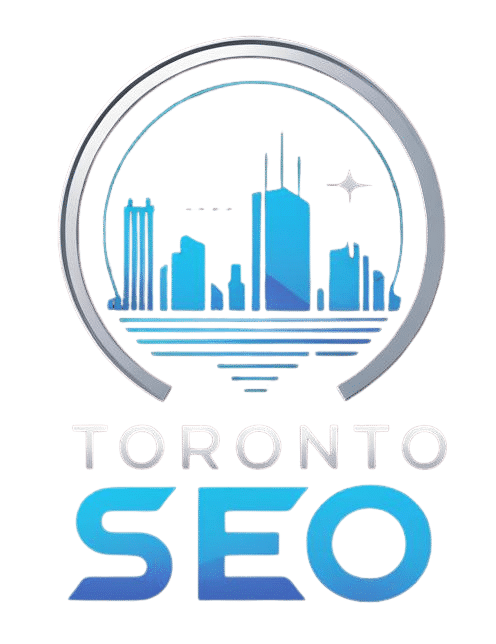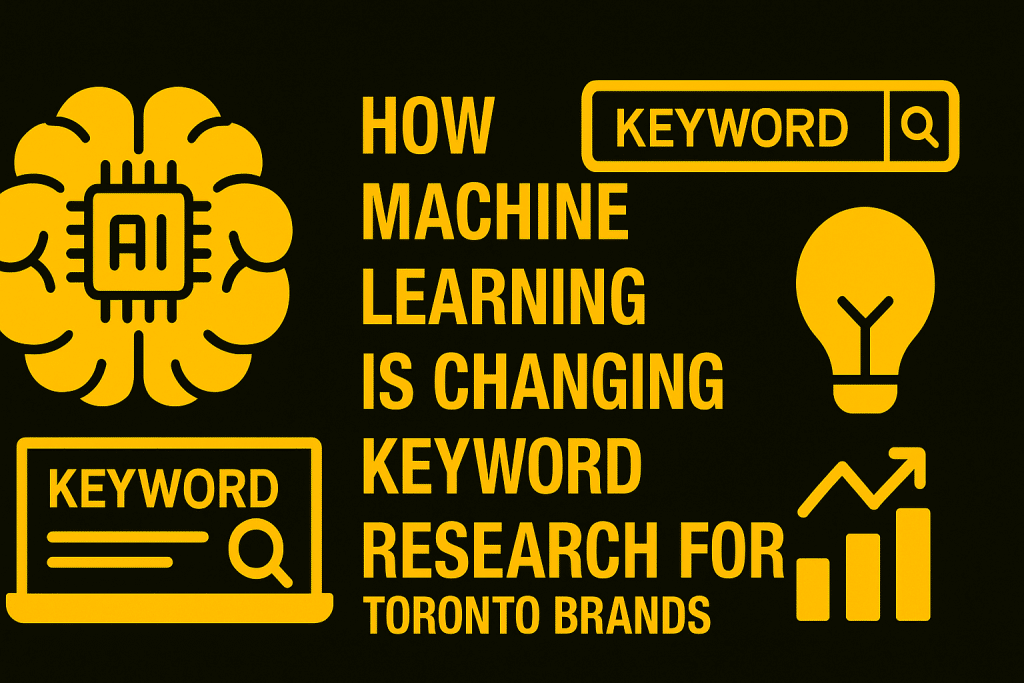Keyword research has always been the backbone of effective SEO. But the landscape is shifting fast — and machine learning (ML) is no longer a futuristic add-on; it’s the central force transforming how Toronto brands uncover, prioritize, and act on keyword data. From predictive models that identify emerging topics to clustering algorithms that redefine search intent, ML is reshaping every stage of keyword strategy.
For businesses operating in Toronto’s hyper-competitive digital environment, embracing machine learning isn’t optional. It’s the key to discovering hidden opportunities, adapting to changing user behaviors, and staying ahead of competitors who still rely on outdated manual keyword research methods.
Understanding the Traditional Keyword Research Limitations
For years, SEO teams depended on a combination of manual brainstorming, Google Keyword Planner, and competitor analysis to compile target keyword lists. While these methods remain useful, they have critical limitations:
Static data: Traditional tools often provide historical search volumes, but not predictive trends.
Surface-level intent: Manual methods may miss nuances in user behavior, especially for local searchers.
Fragmented data: Multiple tools are needed to analyze SERPs, search intent, difficulty, and competitor overlap.
Time-intensive processes: Manually sorting through keyword lists and grouping them can take days.
For Toronto businesses targeting diverse neighborhoods and industries, these gaps create real competitive disadvantages. Machine learning solves these pain points by automating, predicting, and clustering at scale.
Machine Learning: A New Paradigm for Keyword Discovery
Predictive Keyword Models
Machine learning models can analyze massive search datasets to predict upcoming keyword trends before they become mainstream. For example, an ML system can detect a sudden rise in queries about “AI-driven marketing Toronto” weeks before competitors catch on, giving brands a crucial first-mover advantage.
Google’s own AI systems are evolving to better understand user intent through technologies like BERT and RankBrain, which prioritize semantic understanding over exact keyword matches. Businesses that integrate machine learning into their research mimic this intelligence — identifying topic clusters and emerging queries that traditional keyword tools overlook.
For a practical application, many top Toronto agencies are already combining ML models with AI-powered SEO strategies to outrank slower-moving competitors.
Keyword Clustering: Grouping Search Intent at Scale
From Manual Buckets to Algorithmic Clusters
Manually categorizing hundreds or thousands of keywords into clusters is inefficient and error-prone. Machine learning uses natural language processing (NLP) to:
Identify semantically related terms
Group keywords into intent-based clusters
Suggest content strategies for each cluster
For example, a Toronto law firm may target keywords like “divorce lawyer Toronto,” “family law attorney near me,” and “custody legal advice.” Instead of treating them separately, ML-based clustering tools recognize these as part of a “Family Law Toronto” cluster, informing a single content hub rather than multiple isolated pages.
Toronto agencies are increasingly using AI keyword clustering to structure content strategies more efficiently, a shift highlighted in the article on Toronto’s competitive SEO niches.
Intent Detection: Going Beyond Exact Matches
Why Search Intent Is Everything in 2025
Search engines now reward intent alignment over raw keyword frequency. Machine learning models trained on massive datasets can detect intent signals from queries, including:
Informational: “What is local SEO in Toronto?”
Navigational: “Toronto SEO Inc contact page”
Transactional: “Book Toronto SEO agency consultation”
Commercial investigation: “Best SEO agencies in Toronto reviews”
ML tools analyze modifiers, phrasing, and SERP results to accurately classify intent at scale. This enables Toronto brands to create content that matches searcher expectations, increasing both rankings and conversion rates.
For instance, a well-structured local SEO playbook based on machine learning insights can help small businesses rank in competitive Google 3-Pack results by targeting transactional and navigational queries more effectively.

Machine Learning and Zero-Click Searches
Google’s evolving SERPs mean that many searches now end without a click — users get their answers from featured snippets, knowledge panels, or AI-generated overviews. ML tools help marketers:
Identify high zero-click potential keywords
Optimize for rich results and structured data
Predict voice search queries that may never hit the page
For Toronto brands, this means keyword research must account for visibility within SERP features, not just organic listings. Machine learning allows marketers to pivot quickly and capture attention where users are actually interacting, including AI Overviews and local map packs.
For example, understanding Google’s latest algorithm update is critical, as ML-powered updates continue to reshape how search visibility works.
Leveraging Local Data: Geo-Specific Keyword Intelligence
Toronto’s search landscape is complex. With dozens of neighborhoods — from Scarborough to Etobicoke to the downtown core — geo-modified keywords dominate local intent. Machine learning systems can:
Analyze geo-trend data to identify neighborhood-level opportunities
Detect micro-trends, like rising searches for “AI SEO services in North York”
Predict where new demand pockets will emerge based on demographic and search behavior shifts
This level of granularity gives Toronto brands an edge. Instead of relying on broad city-level keywords, ML allows businesses to hyper-target localized search clusters with minimal wasted effort.
Machine Learning Tools Revolutionizing Keyword Research
1. NLP-Powered Keyword Clustering Platforms
These tools use embeddings and similarity scores to group thousands of keywords into topic clusters automatically. They’re particularly useful for Toronto agencies building large content hubs to target competitive verticals like legal, real estate, and healthcare.
2. Predictive Analytics Dashboards
By ingesting data from Google Trends, search consoles, and third-party APIs, predictive ML dashboards can forecast future keyword opportunities weeks or months ahead. This gives brands the agility to create content before the search wave peaks.
3. SERP Feature Trackers
These tools analyze SERP layouts with machine vision and classify which keywords trigger AI Overviews, snippets, or map packs — allowing Toronto businesses to tailor their strategies accordingly.
For authoritative guidance on structured data, Google’s Search Central provides official documentation on optimizing for SERP features.
Real-World Toronto Use Cases
AI Keyword Targeting for E-Commerce
A Toronto-based fashion retailer integrated ML keyword clustering with intent classification. By grouping long-tail queries like “affordable fall jackets Toronto” and “downtown Toronto boutiques jackets” into predictive clusters, they increased organic sessions by 230% in a single quarter.
Law Firm SEO Transformation
A mid-sized Toronto law firm replaced manual keyword spreadsheets with ML-powered clustering tools. By restructuring their content around legal intent clusters, they improved their local SEO rankings across multiple practice areas — something also reflected in broader Toronto SEO agency strategies.
How Toronto Brands Can Get Started
Audit Existing Keyword Lists: Identify gaps where intent isn’t clearly defined or where clusters are missing.
Adopt ML Keyword Tools: Integrate clustering, predictive analytics, and SERP feature tracking platforms.
Restructure Content Around Clusters: Create pillar pages and supporting content targeting entire topic clusters, not just single keywords.
Monitor and Refine: ML tools continue to learn. Regularly update your strategy to match evolving user behavior.
Integrate Local Insights: Use geo-data to tailor strategies to Toronto neighborhoods.
The Future: ML + Human Expertise
Machine learning doesn’t replace SEO professionals; it amplifies their capabilities. The combination of ML-powered insights with human strategy, creativity, and local market knowledge will define the next generation of Toronto keyword research.
Brands that adapt early will dominate search results — not just for today’s keywords but for tomorrow’s emerging search behaviors.
Get Expert Help
To fully leverage machine learning in your keyword strategy, partner with Toronto’s leading SEO specialists. For tailored strategies that blend data science and local expertise, contact our team today.


